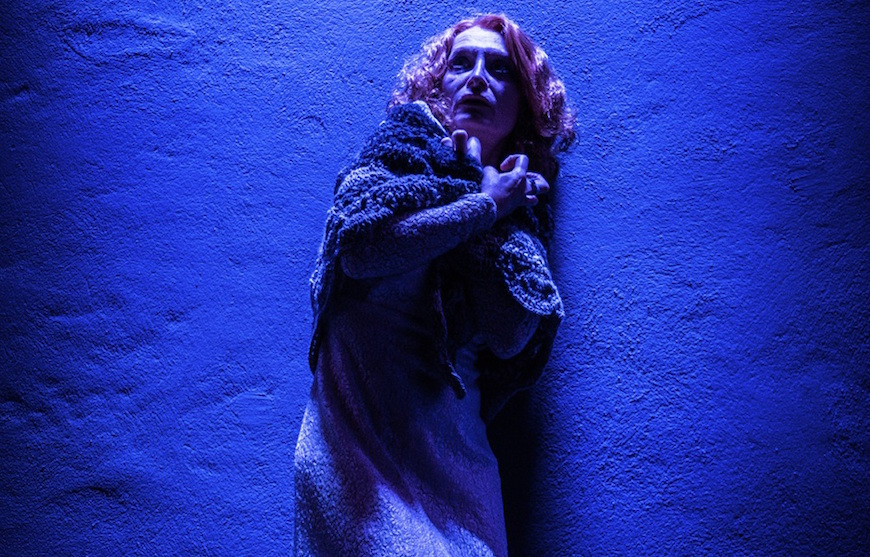Tucked away in the snug confines of the Théâtre Ouvert de Luxembourg is Timothy Lone’s rendition of “Exploring Beckett”. The intimacy of the setting complements of The Story in Motion Project: an exploration of humanity, experience, loss and life.
The first instalment sees Gianfranco Celestino and Caspar Schjelbred deliver emphatic performances without uttering a single word in “Act Without Words II”. Going solely by A and B, they execute identical tasks, juxtaposed in manner, appearance and disposition. As A trembles, sighs and stumbles through his chore; B is determined, precise and efficient to the point of ridicule, each delivering a perfect juxtaposition of characters.
From this silence, “Not I” catapults into noise. What begins as a jumbled whisper rapidly cascades into a waterfall of words. There is nothing but The Mouth: red, vivid and uncanny, glaring out of obscurity. Rhona Richards successfully accomplishes a ranting, raving monologue dripping with emotion, confusion and desperation. Her story jolts the listener back and forth through the lifetime of a life not quite lived, gratingly painful in anguish.
In a renewed change of pace, quiet follows this cacophony. A lullaby eases into eerily sweet melancholy. Once more the story of the past locked in the present, Ann Comfort sits in a rocking chair, recorded memories echoing in the shadows. Her voice torn between infancy and senescence, the woman cries for more with each ending record, pathetic but poignant. It’s a chilling performance, ghostly and glittering.
In “Footfalls”, Richards strides back and forth, the persistent thudding of heavy, hypnotic steps lulling once again. She pauses her ceaseless wandering only to speak with an invisible mother. As May, her voice rings strong through the silence: impatient yet tired and fearful, words the only witness to her mother’s slow decline. As the scene unfolds, speech and the memories bleed into each other, obscuring whatever truth is real. The spectator is finally left unsure whose life, and/or death they witnessed.
Lights flood the stage for the final, politically charged “Catastrophe”. This three-tiered power play sees Schjelbred as the Director barking out orders, changes and adjustments while Richards, his assistant, bends over backwards to make it happen and Celestino stands on a pedestal, groomed, dressed and plucked into position. Together, they mould and move him into the perfect statue. A last act of defiance, a slow movement in contrast to the hectic arrangement, brings the scene to a close.
True to form, Beckett’s plays are minimalist, powerful and absurd, and I strongly recommend this performance to anyone with a penchant for the deep and dark. Scattered laughs erupt at the showcasing of absurdity, however the performance as a whole is quite the sombre ensemble. It’s an abstract illustration of the darker stuff of life: death, habit, futility; and nothing is laid out on a silver platter.
The directing and acting are both powerful and well executed, and all in all I thoroughly enjoyed it, fascinated, as we often are, by the bleak and bizarre of humanity.
“Exploring Beckett” is on at the TOL on 9, 10, 14, 15, 16 and 17 December at 8.30 p.m. and on 18 December at 5.30 p.m.
